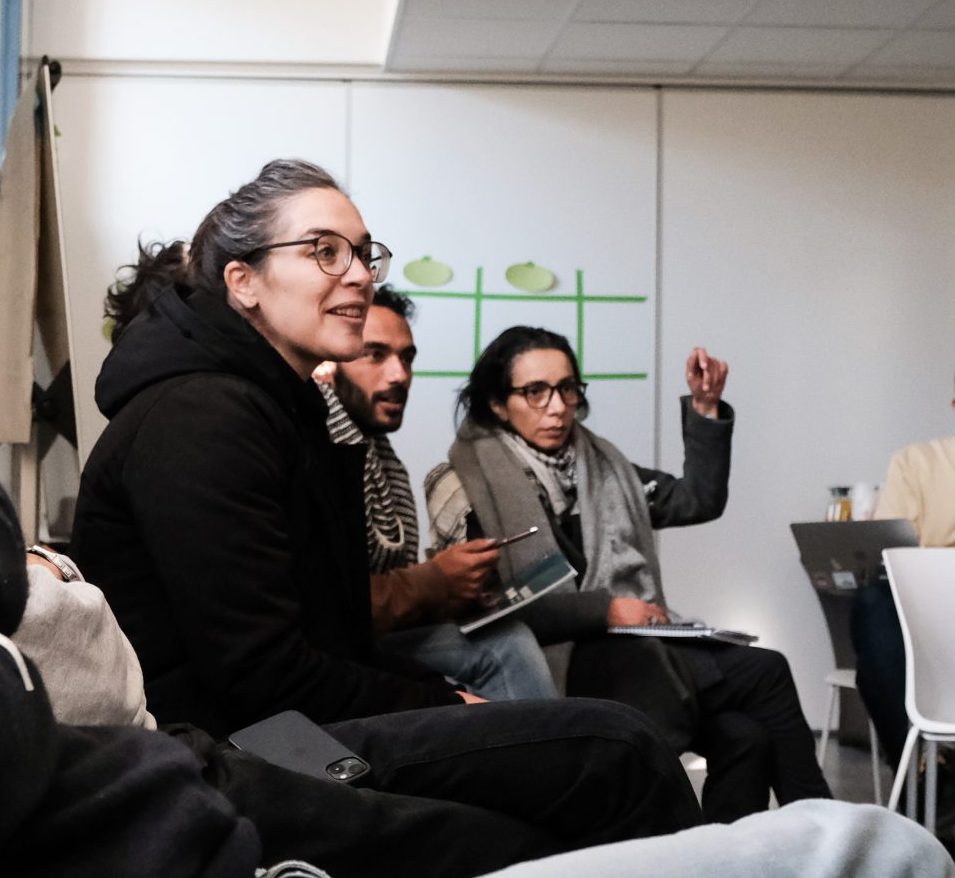News
“If our democratic systems were more inclusive, they would be better able to respond to the major challenges facing our society”

Fondation de France is one of the organisations supporting our mission to reimagine politics in Europe. We are publishing a translated version of the interview they conducted with our Director, Sarah Durieux.
Sarah, you launched the Multitudes Foundation in 2023. What is its mission?
Our aim is to re-imagine politics to make it more inclusive, more humane and more hopeful, throughout Europe. We are convinced that this is one of the best ways to preserve and strengthen democracy. Today, philanthropy is very much involved in issues such as access to education, healthcare and social inclusion. However, it is not sufficiently interested in what enables these missions to be accomplished, namely a functioning democratic system.
In your view, the subject needs to be debated prior to concrete action.
We’re banking on a systemic approach that doesn’t just tackle the consequences of problems. Today, democracy has lost its appeal. For it to work again, we need to develop inclusive leadership and decision-making processes that reflect the diversity of our society. Young people are part of this equation. They get involved in citizen activist movements around climate change or gender equality because they don’t see politics as a way of addressing these issues. Confidence in politics diminishes when essential challenges are not addressed and representation is inadequate. The mission of our foundation is, in particular, to finance actions that enable young people to once again think of politics as a means of achieving their goals, and to reinvest in it to enable it to function better. Make politics a means of action. And to make politics a welcoming place for everyone.
So you act within the political arena itself?
Absolutely, and we make a distinction between acting in the political field and acting in a partisan way. In France, for example, we finance the “Démocratiser la politique” project, which focuses on social representation in the political arena. Indeed, as with gender parity, we need to think about social parity if democracy is to work. The wealthy classes are over-represented in the National Assembly compared to the French population as a whole. For democracy to work, we need a diversity of perspectives and a balanced representation of all age groups and social groups. Faced with this observation, “Démocratiser la politique” makes proposals to political groups to help them rethink the organization of their parties and their leadership.
You are also supporting concrete projects throughout Europe. Can you tell us about some of them?
In Italy, for example, we support the Fantapolitica! association, which assists people under 30 wishing to become involved in municipal politics. It offers training courses (how a municipal council works, how an electoral mandate is exercised), provides on-the-spot support for young people already involved, and is developing a network to share best practices.
Our European dimension makes it easier to share experiences. The players we support in different European countries have shared with us a common need to create a space for discussion, and we have built up a European community of practice among people working on these issues, whether they be members of the organizations we support, researchers or philanthropists. At the beginning of the year, we supported a meeting in Paris between Démocratiser la politique, Fantapolitica and Wir für Demokratie, a German association which works to foster the emergence of a new generation of leaders, representative of the diversity of society, and which we also support. We finance 15 projects in Europe at different stages of development. In particular, we offer grants for individuals and small collectives, as well as for more established organizations, such as Wir für Demokratie, which has been in existence for 3 years and is growing rapidly.
Does this desire to promote democracy also inform the organization of your foundation?
Philanthropy also works better when it’s more open. The best decisions are made when a diversity of perspectives is heard. We have set up a project identification and selection committee that brings together people from all over Europe, representing different life experiences (young people, women, immigrants, LGBTQ+ people, etc.) as well as different areas of expertise (institutional politics, activism, democratic innovation). This gives us the diversity of perspectives and expertise we need to select the projects we support. Our last call for projects attracted 250 applications. 70 projects were eligible, based on criteria defined collectively.
Have you also set up impact measurements?
We have developed an evaluation system that enables us to learn and adapt. It’s not about evaluation as punishment. It’s about understanding what people have learned, identifying any difficulties and working together to find solutions. In our view, philanthropy should act as a coach, not as a project evaluator.
We start from the premise that any project with the right support can have an impact, and that people on the ground are best placed to evaluate actions. We encourage self-evaluation to enable the people involved on a daily basis to reflect together on their impact.
What are your plans for the future?
We want to develop our community of practice into a strategic community, capable of choosing its own projects and actions. We also advocate for a a philanthropic community that is sufficiently united to define what it deems necessary, and to make decisions together, with a shared vision. To achieve this, we need to know and trust each other.